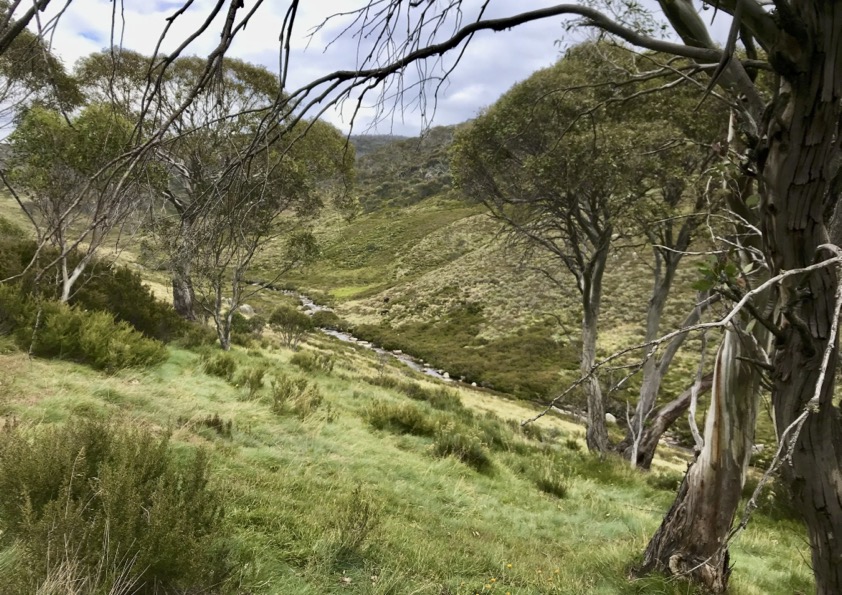Enhancing climate-resilience of ecological restoration
If you're interested in working in the iconic landscape of Kosciuszko National Park this project may be for you. We seek PhD or Honours students to join a collaborative project with NSW DPE to explore drivers of variation of growth and establishment of the montane and alpine species in rehabilitated sites.
Project status
Content navigation
About

Australia’s high country presents an iconic landscape of significant biodiversity, environmental, economic, and cultural value. Wildfire, drought, and other extreme climate events are increasing in both frequency and severity within the high country. Ecological restoration is potentially an important tool for managing the impacts of extreme climatic events and understanding what drives growth and establishment of native species is crucial.
The NSW National Parks and Wildlife Service have an expanding ecological restoration program within the iconic Kosciuszko National Park (KNP), focusing on areas that have been impacted by historical disturbances (e.g., The Snowy Mountains Hydro-electric scheme), frequent wildfire, ski resort development and other infrastructure. Current restoration practices may however not be optimal for ensuring long-term persistence in the context of changes in the frequency of extreme events.
Thus, there are fundamental questions about whether current restoration practices can be modified to improve future resilience. This includes consideration of the selection of species and traits, and the adoption of practices that improve the capacity of the restored ecosystem to capture and store water, organic carbon, and soil nutrients. These questions are particularly timely and relevant to management of KNP.
Potential student research projects will explore drivers of variation of climate and fire resilience traits, growth, establishment, and survival of the dominant montane and alpine species, particularly those targeted in restoration efforts. Plant functional traits relevant to growth and establishment under water and heat stress will be of particular interest. Projects could investigate how variation partitions among individuals, populations, and species, to better inform rehabilitation efforts and improve outcomes. The intent is that the project will inform restoration practice through improved species and provenance selection and that results will also help guide NPWS assessment of those rehabilitation sites that may be most vulnerable to future fire and drought.
Within this broad scope, students will have the opportunity to collaboratively design an appropriate project that suits their interests and skills.
The project will be undertaken in close collaboration with the NSW Department of Planning and Environment Conservation and Restoration Science Branch and National Parks and Wildlife Service (NPWS). The supervisory panel will be chaired by Prof Adrienne Nicotra, along with Dr Josh Dorrough. The research project will also be undertaken in close collaboration with Gabrielle Wilks and Mel Schroeder of the NSW NPWS. Additional supervisors within either the Fenner School of Environment and Society or RSB may be identified, depending on the student and project requirements.
Eligibility
Suitable applicants need to be highly motivated with strong academic and research backgrounds; skills in field biology, plant evolution or ecology, environmental physiology and/or ecological and evolutionary genetics are ideal. Demonstrated ability to conduct fieldwork and independent research experience are highly desirable. A bachelor’s degree with first-class honours or a research master’s degree from a recognised university is a prerequisite. Peer-reviewed publications are an advantage.
Interested domestic candidates should initially send CV and discuss potential projects with Prof Adrienne Nicotra (Adrienne.Nicotra@anu.edu.au).
PhD students within Research School of Biology have access to state-of-art field and laboratory facilities and are part of a dynamic and active research community. The Nicotra lab focuses heavily on the Australian alpine and sub-alpine zone and runs the Australia Mountain Research Facility. The facilities and intellectual environment are outstanding, and the lab is lively, hard-working and inquisitive. We strive to do excellent, fundamental research that is of applied relevance for managing natural systems in the context of rapid global change (https://biology.anu.edu.au/research/research-groups/nicotra-group-plant-physiological-ecology-plant-evolutionary-biology).

